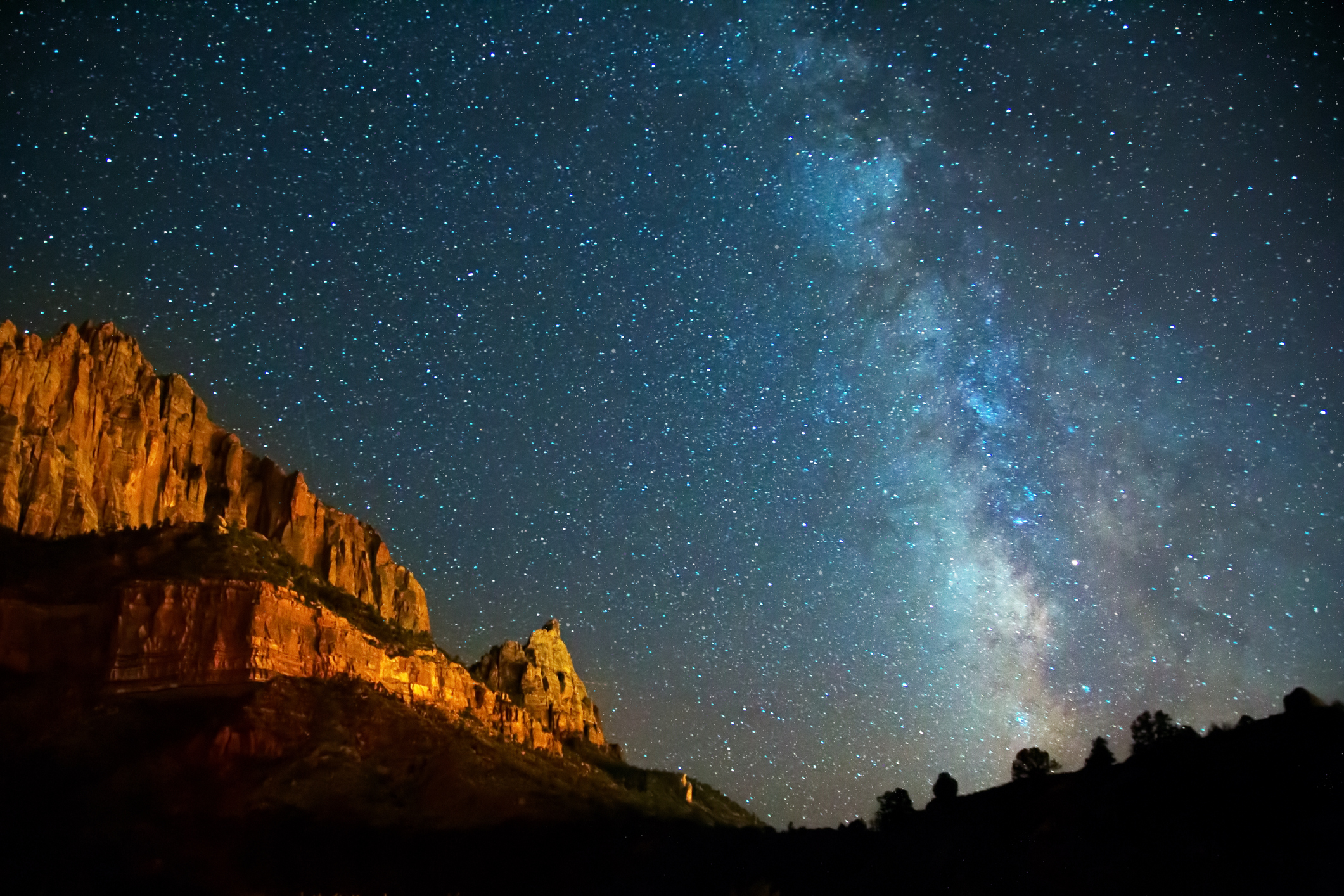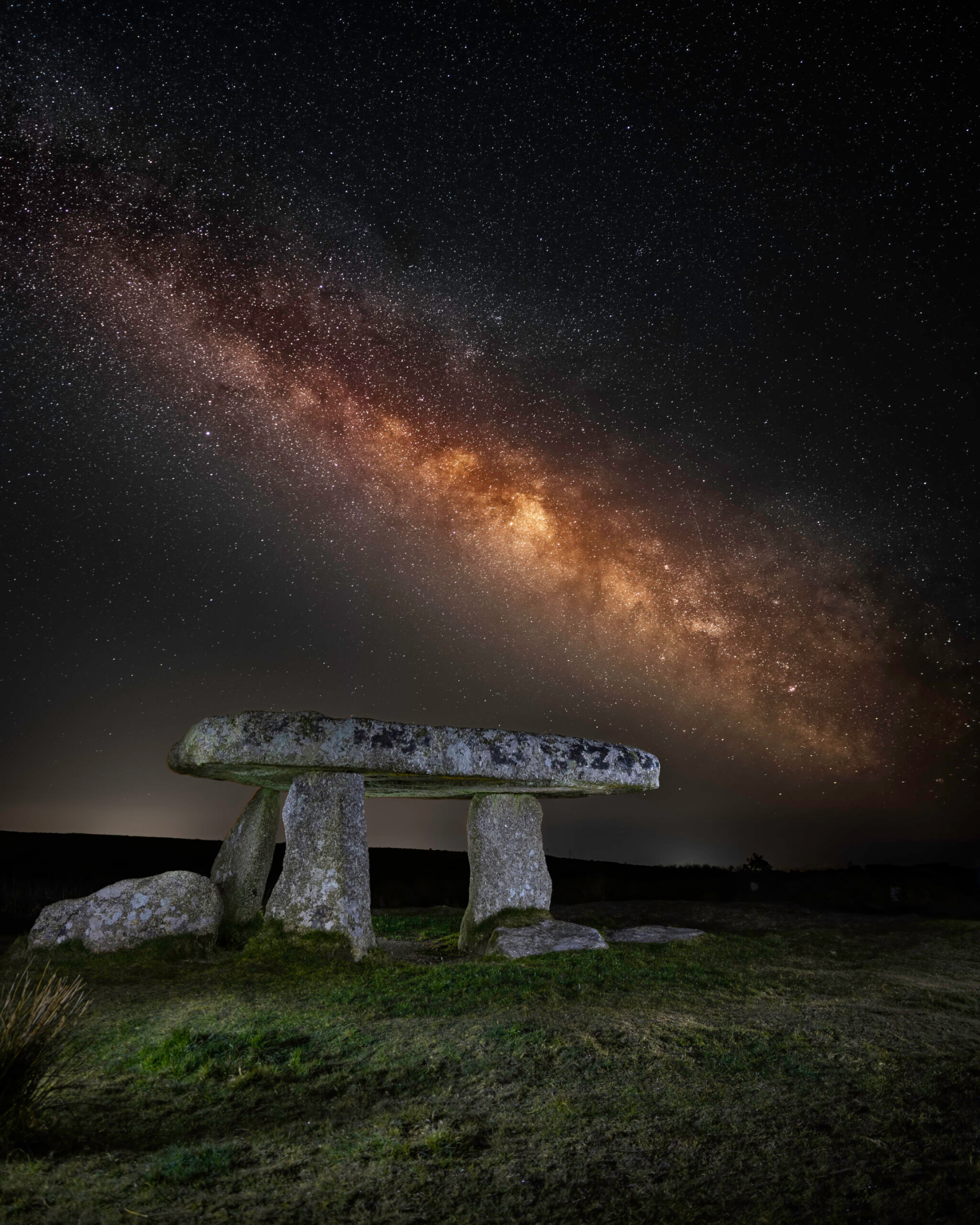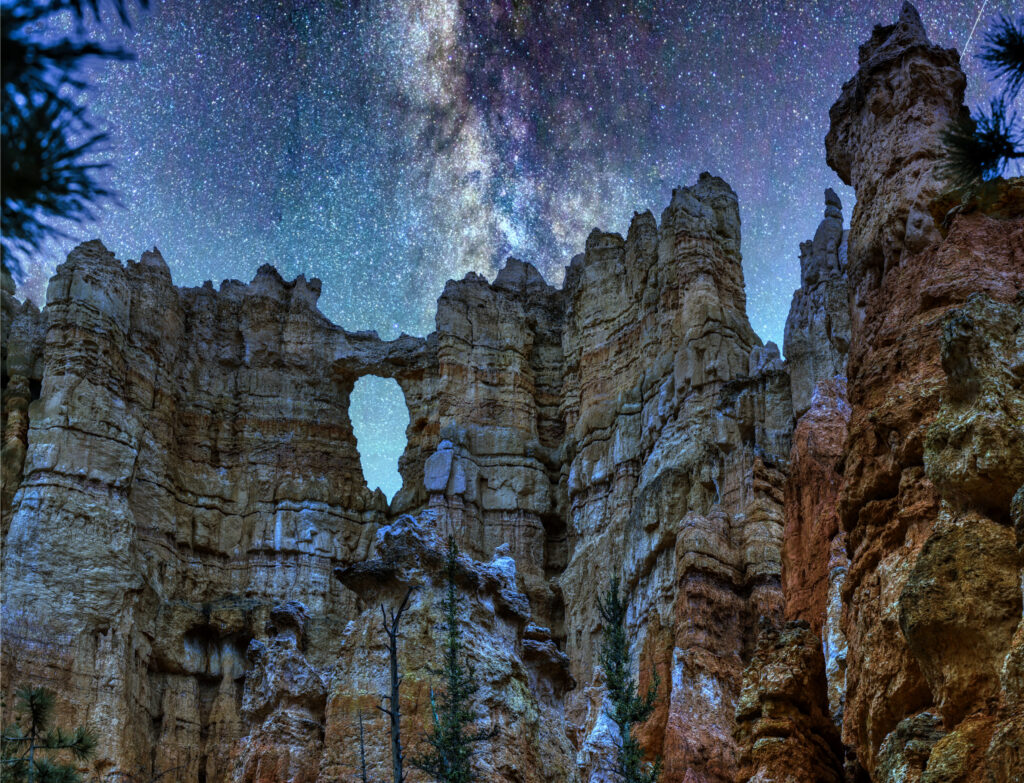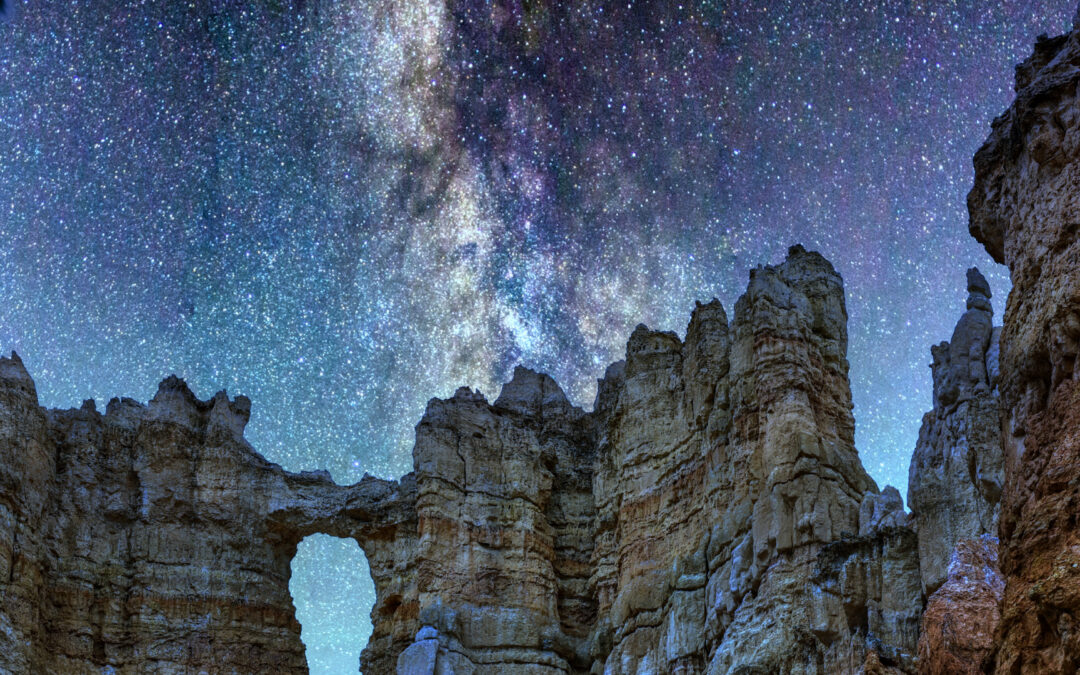Why Overlanders Should Care About Dark Skies
There is nothing like the moment when you reach your remote destination and turn off your vehicle. The sound of the engine is replaced with the small clicks and background noise of a truck settling into stillness. And then as the evening shifts to night, the stars emerge until the whole sky becomes a vibrant map. That starscape is thanks to dark skies, and it’s something overlanders, more than most, can experience firsthand.
But what happens when those stars start to fade?

Zion National Park, Utah / Photo credit: adogslifephotos
The Importance of Dark Skies
The term “dark skies” doesn’t just mean skies at night. It refers to areas with minimal light pollution, allowing clear night sky views. These places are increasingly rare, with over 80% of the world’s population living under light-polluted skies. Yet, a quiet, worldwide movement aims to preserve these dwindling night skies—enter the International Dark-Sky Association (IDA), a group of passionate advocates fighting to save the night.
Why does this matter to an overlander? A clear, starry sky is more than a beautiful backdrop. It’s a vital part of the natural environment and essential for the well-being of wildlife and human health. Not to mention, there’s nothing quite like navigating your way through off-grid trails by day and being surrounded by starlight at night.
Overlanding and its connection to the night
Overlanding is about many things, but connection is the most important. Connection to community, to different cultures, the road less traveled, to landscapes untouched by the hands of overdevelopment, and most importantly, to the rhythms of nature. And part of that connection is experiencing the night in its truest form. Whether camping deep in the desert, finding solitude in the mountains, or wandering through the high plains, the dark sky becomes an intrinsic part of the overland experience.
Dark skies are essential to this journey. They invite us to slow down, notice, and be a part of something bigger.
But the modern world has trouble slowing down – it only comes naturally in outdoor environments. Nights have become drowned in artificial light, and the ability to experience the darkness as it should be—untouched, raw, and pure has become a challenge. In fact, much of what makes overlanding so rewarding is slowly being encroached upon by this invisible threat: light pollution.
Light pollution threatens natural spaces
Just as we worry about keeping our trails open and wild, we should worry about keeping our skies dark. Light pollution is often ignored in conversations about preserving nature, but it’s a genuine concern. It’s not just city skies washed out by streetlights; light pollution travels. Light pushes into remote skies, disrupting ecosystems, disorienting wildlife, and diminishing our connection to the night.
It is a double blow for overlanders, hikers, and outdoor enthusiasts. The remote corners of the world we seek for their natural beauty—places like deserts, forests, and mountain ranges—are slowly being infiltrated by the glow of civilization, erasing the stars from the human eye one by one.

Lanyon Quoit in West Penwith, UK. Photo credit: Chris Colyer via DarkSky
The Role of the International Dark-Sky Association (IDA)
This is where the IDA comes in. Founded in 1988, the International Dark-Sky Association has made it their mission to combat light pollution. The IDA works to preserve and protect the night skies for future generations through initiatives like the International Dark Sky Places Program. These areas, designated as Dark Sky Parks, Reserves, and Sanctuaries, are scattered across the globe, often in some of the very places overlanders frequent.
One of the best things we can do as seekers of remote corners is support these efforts. From choosing campsites near designated dark sky areas to adopting responsible lighting practices in our own setups, there’s a lot we can do to ensure the night stays untouched and the stars clear. After all, what’s an off-grid adventure without the stars to inspire you?
Tips for Protecting Dark Skies While Overlanding
- Camp Smart: Seek out campsites far from light-polluted areas. Dark Sky Preserves and parks are prime spots for stargazing, ensuring the night remains pristine.
- Use Low-Impact Lighting: Use red or low-lumen lighting when setting up camp. It’s less harsh on the eyes and doesn’t contribute to light pollution. Avoid bright floodlights and opt for dimmer, task-focused lighting.
- Turn Off Unnecessary Lights: Whether it’s your vehicle’s roof lights or extra camp lights, turning them off when not in use preserves the night for everyone.
- Educate and Advocate: Spread the word about light pollution and how it affects the environment. The more people understand the impact of light pollution, the greater chance we have of preserving dark skies.

Experiencing a True Dark Sky Moment
There’s something almost primal about staring into a sky full of stars. It reminds me of my place in the universe and gives a sense of freedom that no cityscape ever could. I will never forget the night we spent in a remote part of Utah. We were camped on the edge of the Grand Staircase-Escalante National Monument, right next to an official Dark Sky Sanctuary. There was no sound or wind, and the weather was so perfect that the air was almost undetectable against my skin.
It was late at night, and I sat in my chair staring up at the soft glow of the Milky Way. I was overcome with a feeling of nothing and everything. The emptiness of space inverted, and the simple act of observing the vast canopy of stars in our galaxy made me feel less alone and more alive.
That night, reclined and humbled, I realized something important. Overlanding, with all its challenges and rewards, is about embracing the world as it is, untouched and unaltered. And that includes the night.
Dark skies are more than just a beautiful view—they’re a part of the overland experience. So next time you’re out there, switch off the lights, look up, and lose yourself in the wonder of the night. Trust me, you won’t regret it.


Great article, Corrie! Thanks for bringing more awareness to the importance of dark skies.
Loved your article. Designated dark skies are amazing. I want to add that the more I do dark sky adventures while overlanding, the more I love it. Also, I have discovered so many places that are dark by looking up the light pollution map. For e.g., North Kaibab National Forest is exceptionally dark, but not a designated dark sky.